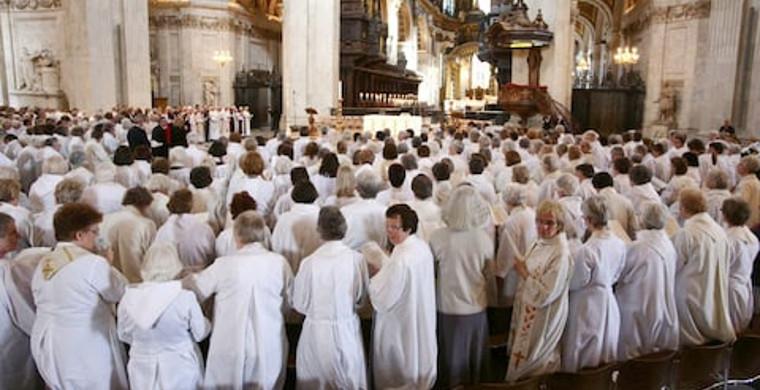UK: One in ten members of clergy victims of violence as anti-Christian hate crimes rises
One in ten members of the Church of England clergy has been the victim of violent behaviour in the last two years, a government-funded survey has foundOne in ten members of the Church of England clergy has been the victim of violent behaviour in the last two years, a government-funded survey has found CREDIT: YUI MOK/PA
By Abigail Frymann Rouch
https://www.telegraph.co.uk/authors/abigail-frymann-rouch/
28 DECEMBER 2018
One in ten members of the Church of England clergy has been the victim of violent behaviour in the last two years, a government-funded survey has found.
The same proportion say they are experiencing more anti-Christian hate crime than they did two years ago.
The survey also found that more than two-thirds have been on the receiving end of verbal abuse and one in five has experienced threatening behaviour over the last two years.
The findings, released on Friday, also showed that clergy who have suffered violence are more likely to find their work "more challenging" than they did previously.
The research was carried out by academics at Royal Holloway, University of London, with £5,000 from the Ministry of Housing, Communities and Local Government, amid fears that increasing secularisation, the declining status of clergy and abuse scandals may be impacting on the way clergy are treated.
Of the respondents who have experienced threatening behaviour in the last two years, more than one-third have been threatened more than once.
In the vast majority of cases, the threat was to harm the cleric personally, but 20 per cent had a relative threatened and 35 per cent had experienced threats to church property.
The reason respondents most commonly gave for verbal abuse they received -- cited in one-quarter of cases -- was because they had declined to give money to someone who had asked them for it.
In just over one-sixth of incidents, respondents said the motive was anti-Christian hate crime, and alcohol and drug problems were cited in 13 per cent of incidents.
Where verbal abuse had taken place many times, the reason most commonly given -- in 41 per cent of cases -- was mental illness.
Almost one-sixth of respondents said they had seen a rise in online hate crime and four per cent of male clergy said they had been threatened online.
Male respondents were more likely to report being threatened while undertaking pastoral work such as home visits, while female clergy were more likely to report being threatened on church premises by a church member.
The proportion of respondents who felt clergy were shown less respect than two years ago increased with age.
Jonathan Gabe, Professor of Sociology at Royal Holloway, said: "The clergy have a difficult job, especially when faced with the risk of violence, as documented in our survey.
"The research suggests that further thought needs to be given as to how best to help clergy manage when faced with such violence."
More than 540 clergy from south-east England, excluding London, took part in the survey.
Nick Tolson, the Director of National Churchwatch, who requested the funding for the survey, told The Telegraph that the Church of England should do more to support its clergy.
He said a 2001 survey by Royal Holloway found that a similar percentage of clergy had experienced physical assaults to that recorded in the new survey, meaning that clergy were just as vulnerable to physical attack as 17 years ago.
"There's still no organised training for clergy in dealing with violence or conflict management," he said.
Notes accompanying the findings of the 2001 survey stated that while physical assaults could include "being pushed or shoved without injury", the experience "often affected the way in which professionals dealt with clients subsequently and made them feel less secure".














